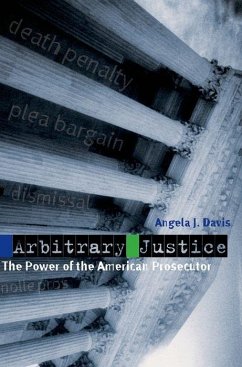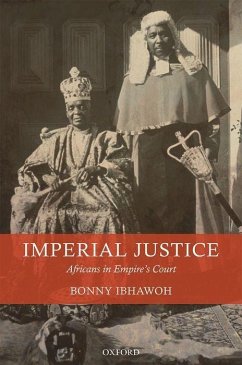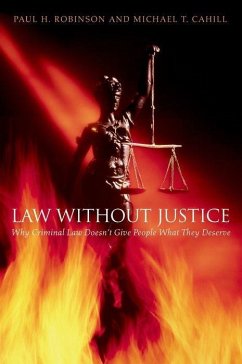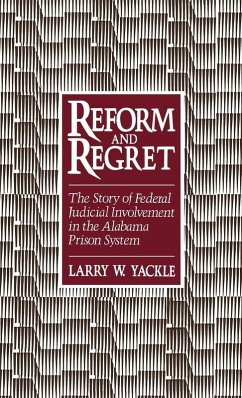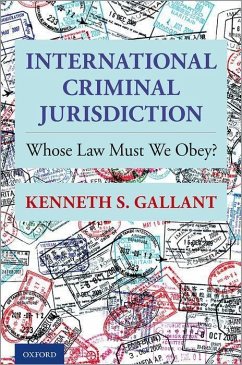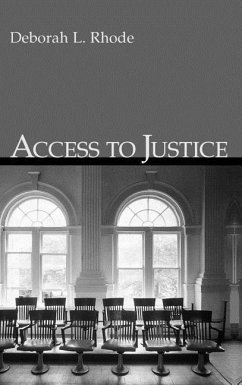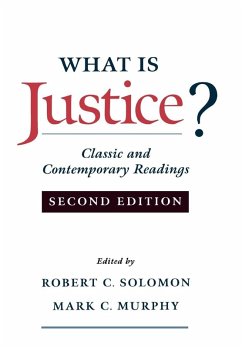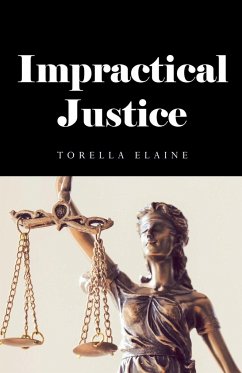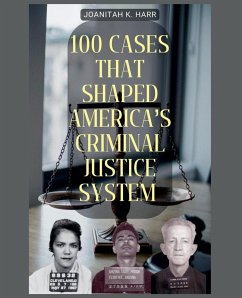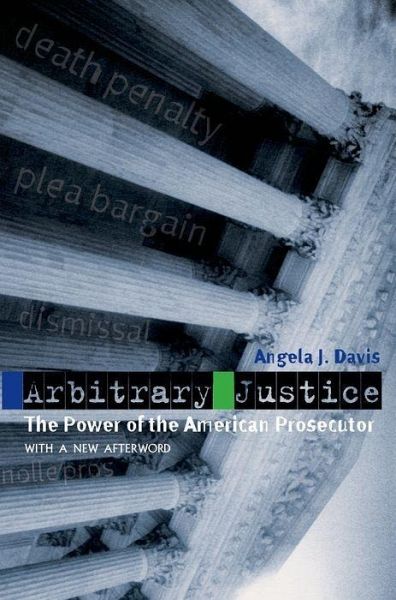
Arbitrary Justice
The Power of the American Prosecutor
Versandkostenfrei!
Versandfertig in 1-2 Wochen
41,99 €
inkl. MwSt.
Weitere Ausgaben:

PAYBACK Punkte
21 °P sammeln!
What happens when public prosecutors, the most powerful officials in the criminal justice system, seek convictions instead of justice? Why are cases involving well-to-do victims often prosecuted more vigorously than those involving poor victims? Why do wealthy defendants frequently enjoy more lenient plea bargains than the disadvantaged? In this eye-opening work, Angela J. Davis shines a much-needed light on the power of American prosecutors, revealing how the day-to-day practice of even the most well-intentioned prosecutors can result in unequal treatment of defendants and victims. Ranging fr...
What happens when public prosecutors, the most powerful officials in the criminal justice system, seek convictions instead of justice? Why are cases involving well-to-do victims often prosecuted more vigorously than those involving poor victims? Why do wealthy defendants frequently enjoy more lenient plea bargains than the disadvantaged? In this eye-opening work, Angela J. Davis shines a much-needed light on the power of American prosecutors, revealing how the day-to-day practice of even the most well-intentioned prosecutors can result in unequal treatment of defendants and victims. Ranging from mandatory minimum sentencing laws that enhance prosecutorial control over the outcome of cases, to the increasing politicization of the office, Davis uses powerful stories of individuals caught in the system to demonstrate how the perfectly legal exercise of prosecutorial discretion can result in gross inequities in criminal justice. For the paperback edition, Davis provides a new Afterword which covers such recent incidents of prosecutorial abuse as the Jena Six case, the Duke lacrosse case, the Department of Justice firings, and more.




